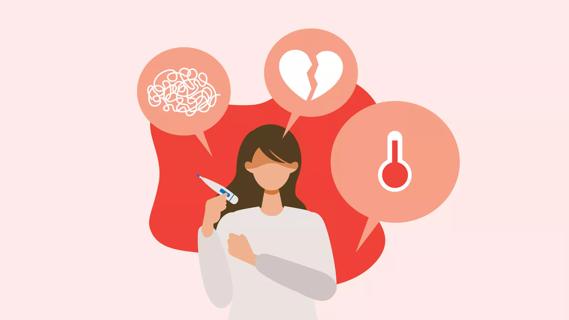Expert tips on how to de-stress while you're on the job

It’s known that stress from work is bad for your health, including causing an increase in your risk for cardiovascular disease, particularly high blood pressure and heart disease.
Advertisement
Cleveland Clinic is a non-profit academic medical center. Advertising on our site helps support our mission. We do not endorse non-Cleveland Clinic products or services. Policy
If you’ve wondered specifically if stress can cause a stroke, too, the answer is unfortunately, yes.
“There has been mounting evidence exploring stress as a risk factor for stroke — especially stress related to your job,” says neurologist Irene Katzan, MD. “Several studies now link work stress to an increased risk of stroke in adults.”
Exactly what happens when you get stressed depends on what other factors you’re experiencing too. Stress can work to trigger medical problems or alongside other medical afflictions that cause a stroke.
“Often stress, when combined with other factors, leads to triggers for disease,” Dr. Katzan says.
“Sometimes stress can cause inflammation, hypertension, or other vascular conditions — and it’s these that can lead to stroke or heart attack.”
Increasing levels of psychosocial distress (like the kind you get from pressures at work) are related to the risk of both fatal and nonfatal stroke in adults.
In one study, researchers in China compiled data from six studies with 138,782 participants. Researchers evaluated the link between job stress and future stroke risk. The study, which appears in the journal Neurology, shows that stroke caused by stress is indeed possible — and any stress is harmful to your health and should be taken seriously.
Advertisement
It looked at two dimensions of work — psychological job demand and job control. Psychological job demand was identified as time pressure, mental load and level of responsibility while job control was identified as one’s control over their decisions.
Researchers found that jobs with high demands and low control (such as a waitress or nurses’ aide) were associated with a 22% increased risk of stroke compared with jobs with low demand and high control like an architect or natural scientist.
A study in 2010 identified the 10 risk factors that are associated with 90% of the risks of certain types of stroke. Work-related stresses can trigger many of these — particularly depression, hypertension, eating poorly, smoking, less time for exercise or alcohol abuse.
In another study, higher levels of stress and depressive symptoms were linked to increased risk of what’s called “incident stroke” or TIA (transient ischemic attacks) in middle-aged and older adults.
For many of us, stress at work is inescapable, but there are strategies you can use to reduce the pressure on your mind and body.
”Since stress leads to unhealthy behaviors getting ahead of those behaviors is key to reducing your risk for stroke,” Dr. Katzan says. “You can take steps while on the job to take the tension down a notch.”
Here are some simple ways to de-stress at work and at home:
“The most important is to zoom out every once in a while, avoid unhealthy behaviors, develop healthy eating habits and do some kind of physical activity every day,” she says. “If your job is highly-stressful make sure to stay mindful of your blood pressure and see your doctor if your stress becomes unmanageable.”
Advertisement

Sign up for our Health Essentials emails for expert guidance on nutrition, fitness, sleep, skin care and more.
Learn more about our editorial process.
Advertisement

Even small moments of time outdoors can help reduce stress, boost mood and restore a sense of calm

Fill your coping toolbelt with healthy skills like getting outside, writing in a journal, volunteering, laughing or talking with a friend

We all experience some stress from time to time, but chronic stress can contribute to health issues like diabetes and cardiovascular disease

Getting outside, eating a healthy diet, taking up journaling, listening to music — even cuddling a pet — can provide stress relief

Give these 30+ grocery items a try to help find relief

In response to stress or danger, your brain responds by either defending itself, running away, stopping or reconciling

From nausea, weight gain and eczema, stress can affect your immune system in many ways

Stress hormones trigger cravings in an attempt to keep us safe from danger

Even small moments of time outdoors can help reduce stress, boost mood and restore a sense of calm

A correct prescription helps your eyes see clearly — but as natural changes occur, you may need stronger or different eyeglasses

Both are medical emergencies, but they are very distinct events with different causes